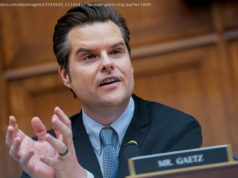The former UN secretary general became a proponent of diplomatic interventions to alleviate human suffering. Annan died Saturday at the age of 80.
Kofi Annan, who died Saturday at the age of 80 in Bern, Switzerland, will be remembered as the UN’s first secretary-general from sub-Saharan Africa, a courtly figure who oversaw the global organization during a period of tumult, and as the winner of the Nobel Peace Prize. But in many ways, Annan’s legacy will be defined as much by his failures, and what he did with them, as by his many successes.
Prime among those failures was his perceived inaction to stop the genocide of 800,000 Rwandans in 1994 when he ran the UN’s peacekeeping operations, and, a year later, the Srebrenica massacre in which 8,000 Bosnian Muslims were murdered by Bosnian Serb forces. As Samantha Power, later the U. S. ambassador to the UN, wrote in Chasing the Flame, her biography of Sergio Vieira de Mello, the UN diplomat who was killed in Iraq, Annan’s “name would appear in the history books beside the two defining genocidal crimes of the second half of the twentieth century.”
An independent investigation in 1999 into the 1994 genocide found the UN had failed Rwanda. Annan, by that time secretary-general of the UN, said: “All of us must bitterly regret that we did not do more to prevent it.” He said the UN force in Rwanda at the time “was neither mandated nor equipped for the kind of forceful action” needed to prevent the genocide. But he added: “On behalf of the United Nations, I acknowledge this failure and express my deep remorse.” Five years later, i n a speech marking the 10 th anniversary of the genocide, Annan said that if the UN, various governments, and the media had paid more attention to what was unfolding in Rwanda, the massacres might have been averted.
“The international community is guilty of sins of omission. I myself, as head of the UN’s peacekeeping department at the time, pressed dozens of countries for troops. I believed at that time that I was doing my best,” he said. “But I realized after the genocide that there was more that I could and should have done to sound the alarm and rally support. This painful memory, along with that of Bosnia and Herzegovina, has influenced much of my thinking, and many of my actions, as secretary-general.”
Indeed, his forceful support, while still heading the UN’s peacekeeping operations, of NATO’s airstrikes in Bosnia in 1995, all but ensured that the U. S. would support his candidacy to replace Boutros Boutros-Ghali as the UN’s top diplomat in 1996.
Michael Ignatieff, the Canadian author, in a review of Annan’s autobiography, Interventions: A Life in War and Peace, called Annan at once “agreeable and remote,” but added that “ doesn’t explain how he managed to keep his reputation intact while rising up through nether regions of the UN bureaucracy—human resources and budgeting—where nepotism and mismanagement were notorious.”
“This ascent demanded a polite but ruthless care of his own reputation, together with an ability to distance himself from trouble. Along the way he deeply internalized the moral rhetoric of the institution and never let its dreary reality drain away his idealism,” Ignatieff wrote, adding: “ When he accepted the Nobel Prize awarded jointly to him and the UN in 2001, he seemed to many the most complete incarnation of its ideals of any secretary-general who ever lived.”
At the UN, Annan, a Ghanian who spent his entire career at the institution, oversaw a period of reform, outlined an ambitious agenda to reduce global poverty, and set up a global fund to combat HIV/AIDS. But the experiences of Rwanda and Srebrenica prompted Annan in 1999 to question the role of the international community in protecting civilian populations.
“Just as we have learned that the world cannot stand aside when gross and systematic violations of human rights are taking place, so we have also learned that intervention must be based on legitimate and universal principles if it is to enjoy the sustained support of the world’s peoples,” he said. “This developing international norm in favor of intervention to protect civilians from wholesale slaughter will no doubt continue to pose profound challenges to the international community.”
“Any such evolution in our understanding of state sovereignty and individual sovereignty will, in some quarters, be met with distrust, skepticism, even hostility. But it is an evolution that we should welcome. Why? Because, despite its limitations and imperfections, it is testimony to a humanity that cares more, not less, for the suffering in its midst, and a humanity that will do more, and not less, to end it. It is a hopeful sign at the end of the twentieth century.”
At the end of his second term as UN secretary general in 2006, Annan continued the work of diplomacy through a foundation he established that bore his name. In 2012, he became chair of The Elders, an organization set up by Nelson Mandela to resolve the world’s conflicts. His major achievement in this period was successfully mediating an end to Kenya’s post-election violence in 2008.
Raila Odinga, the opposition leader who signed the agreement brokered by Annan, said on Facebook Saturday that the former secretary-general “stepped in and saved the country from collapse.” Recalling his role mediating in the process last year, Annan called the effort “ amongst the most intensive and enduring of all my interventions.”
Other efforts weren’t as successful. He was named a UN envoy to Syria, but resigned from position in 2012 because of what he said was an insufficient attempt by the international community to end the Syrian conflict. “At a time when we need, when the Syrian people desperately need, action, there continues to be finger-pointing and name-calling in the Security Council,” he said .
In some ways, that “finger-pointing and name-calling” is emblematic of the way the UN Security Council has worked during global conflicts, even during the Annan era, as each of its members—China, France, Russia, the U. K. and the U. S.—protects its interests or fails to act. That inaction has been on display most recently during the conflict with the Rohingya in Myanmar; Annan chaired an independent commission into the violence against the Rohingya and warned of radicalization if the Burmese government did not resolve the issue nonviolently.






